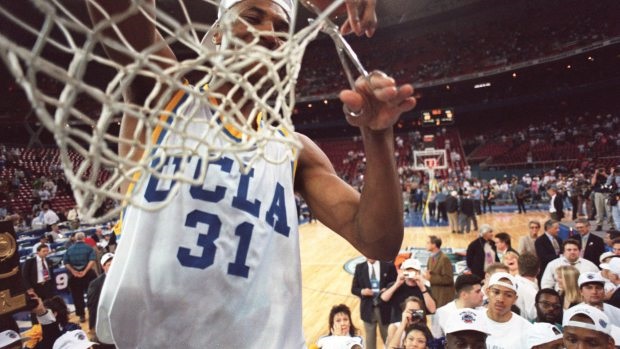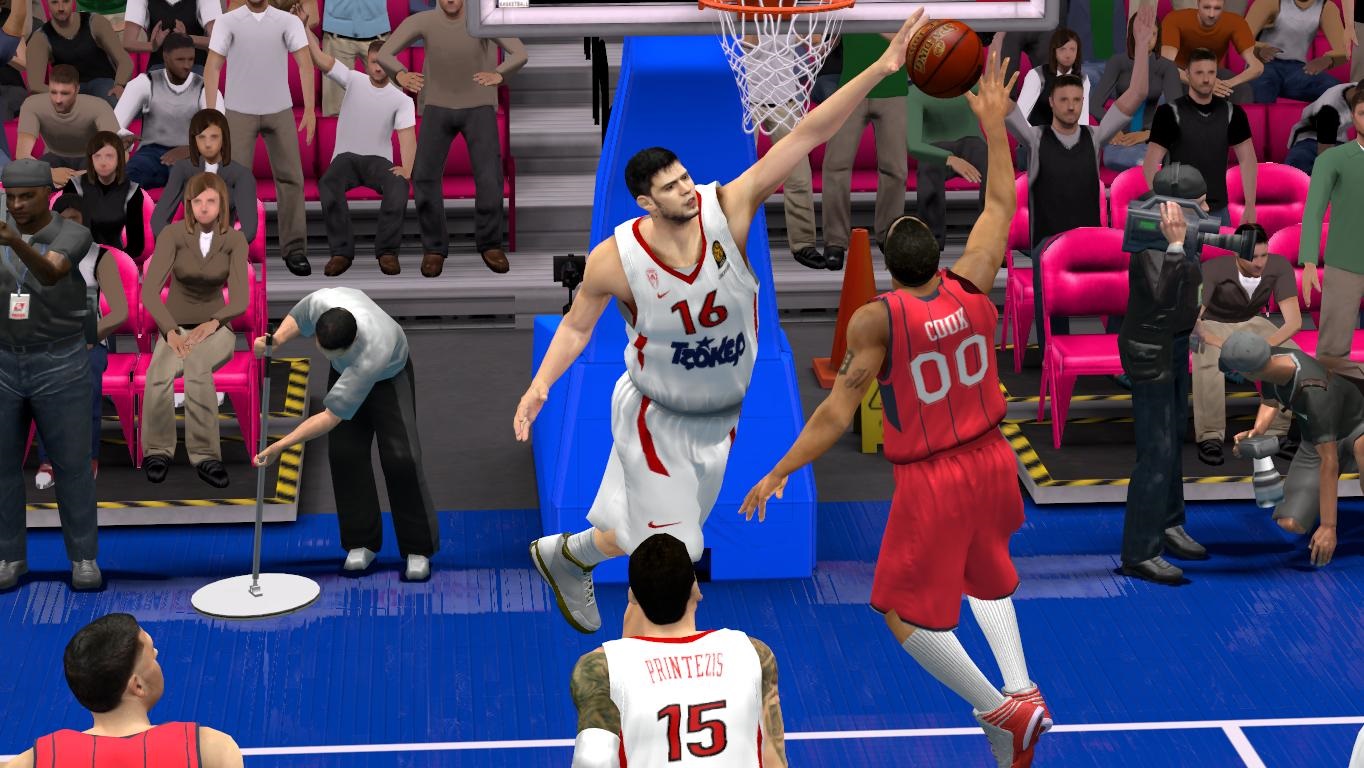Over the last twenty years,
professional cycling has developed the reputation of one of the “most drug
soaked sports in the world”.[1]
This should not come as a surprise. The sport’s integrity has plummeted down
due to an unprecedented succession of doping scandals. La crème de la crème of
professional cyclists has been involved in doping incidents including Tyler Hamilton, Floyd Landis, Alejandro
Valverde
and Lance Armstrong. The once prestigious
Tour de France has been stigmatized as a race of “pharmacological feat, not a
physical one”.[2]
In view of these overwhelming shadows, in
2008, the
International Cycling Union (UCI), in cooperation with the World Anti-Doping
Agency (WADA) took a leap in the fight against doping. It became the
first International Sports Federation to implement a radical new anti-doping
program known as the Athlete
Biological Passport (ABP).[3]
More...
I. Literature
1. Antitrust/Competition Law and Sport
G Basnier, ‘Sports and competition law: the case of the salary
cap in New Zealand rugby union’, (2014) 14 The
International Sports Law Journal 3-4, p.155
R Craven, ‘Football and State aid: too important to fail?’ (2014) 14 The International Sports Law Journal 3-4, p.205
R Craven, ‘State Aid and Sports Stadiums: EU Sports Policy or
Deference to Professional Football’ (2014) 35 European Competition Law Review Issue 9,
453
2. Intellectual Property Rights in Sports law /
Betting rights/ Spectators’ rights/ Sponsorship Agreements
Books
W T Champion and K
DWillis, Intellectual property law in the
sports and entertainment industries (Santa Barbara, California; Denver, Colorado;
Oxford, England: Praeger 2014)
J-M Marmayou
and F Rizzo, Les contrats de sponsoring
sportif (Lextenso éditions 2014)
More...
The rise of Dutee Chand, India’s 100 and 200-meter champion
in the under 18-category, was astonishing. Her achievements were more than
promising: after only two years, she broke the 100m and 200m national junior
records, competed in the 100m final at the World Youth Athletics Championships
in Donetsk and collected two gold medals in the Asian Junior Championships in
Chinese Taipei. But, in July 2014, this steady rise was abruptly halted.
Following a request from the Athletics Federation of India (AFI), the Sports
Authority of India (SAI) conducted blood tests on the Indian sprinters. Dutee
was detected with female hyperandrogenism, i.e a condition where the female
body produces high levels of testosterone. As a result, a few days before the
Commonwealth Games in Glasgow, the AFI declared Dutee
ineligible to compete under the IAAF Regulations and prevented her from competing in future national and
international events in the female category. Pursuant to the IAAF
‘Hyperandrogenism Policy’, the AFI would allow Dutee to return to competition
only if she lowers her testosterone level beneath the male range by means of
medical or surgical treatment.[1]
On 25 September 2014, Dutee filed an appeal before
the CAS, seeking to
overturn the AFI’s decision and declare IAAF and IOC’s hyperandrogenism
regulations null and void. She is defending her right to compete the way she
actually is: a woman with high levels of testosterone. Interestingly enough,
albeit a respondent, AFI supports her case.
IAAF and IOC rules set limits to female
hyperandrogenism, which is deemed an unfair advantage that erodes female sports
integrity. While these rules have been contested with regard to their scientific and ethical aspects, this is the first time
that they will be debated in court. This appeal could have far-reaching
ramifications for the sports world. It does not only seek to pave the way for a
better ‘deal’ for female athletes with hyperandrogenism, who are coerced into
hormonal treatment and even surgeries to ‘normalise’ themselves as women[2],
but it rather brings the CAS, for the first time, before the thorny question:
How to strike a
right balance between the core principle of ‘fair play’ and norms of
non-discrimination, in cases where a determination of who qualifies as a ‘woman’
for the purposes of sport has to be made? More...
On 8 August, U.S. District
Judge Claudia Wilken ruled in favour of former UCLA
basketball player O'Bannon and 19 others, declaring that NCAA's longstanding refusal
to compensate athletes for the use of their name, image and likenesses (NILs) violates
US antitrust laws. In particular, the long-held amateurism
justification promoted by the NCAA was deemed unconvincing.
On
14 November, the NCAA has appealed the judgment, claiming that federal judge erred in law by
not applying a 1984 Supreme Court ruling. One
week later, the NCAA received support from leading antitrust professors who are challenging the
Judge Wilken’s reasoning in an amicus curiae. They are concerned that the judgment may jeopardize
the proper regulation of college athletics. The professors argued that if
Wilken’s judgment is upheld, it
“would substantially expand the power of the federal courts to alter
organizational rules that serve important social and academic interests…This
approach expands the ‘less restrictive alternative prong’ of the antitrust rule
of reason well beyond any appropriate boundaries and would install the
judiciary as a regulatory agency for collegiate athletics”.
More...
In the wake of the
French Labour Union of Basketball (Syndicat National du Basket, SNB) image
rights dispute with Euroleague and EA Games, we threw the “jump ball” to start
a series on players’ image rights in international professional basketball. In our first blogpost, we discussed why
image rights contracts in professional basketball became a fertile ground for disputes
when it comes to the enforcement of these contracts by the Basketball Arbitral
Tribunal (BAT). Indeed, we pointed out that clubs might take advantage of the
BAT’s inconsistent jurisprudence to escape obligations deriving from image
rights contracts.
In this second limb, we will open a second
field of legal battles “around the rim”: the unauthorized use of players’ image
rights by third parties. We will use as a point of reference the US College
Athletes image rights cases before US Courts and we will thereby examine the
legal nature of image rights and the precise circumstances in which such rights
may be infringed. Then, coming back to where we started, we will discuss the
French case through the lens of US case law on players’ image rights.

Source: http://philadelphia.cbslocal.com/2013/09/27/ea-sports-settles-college-likeness-case/ More...
Last week, the French
newspaper Les Echos broke the story that UEFA (or better said its subsidiary)
will be exempted from paying taxes in France on revenues derived from Euro 2016.
At a time when International Sporting Federations, most notably FIFA, are facing
heavy criticisms for their bidding procedures and the special treatment enjoyed by their officials, this tax exemption was not likely to go unnoticed. The French minister
for sport, confronted with an angry public opinion, responded by stating that
tax exemptions are common practice regarding international sporting events. The
former French government agreed to this exemption. In fact, he stressed that without
it “France would never have hosted the competition and the Euro 2016 would
have gone elsewhere”. More...
A warning
addressed to fans of French teams featuring in the recently launched video game
NBA 2K15: Hurry up! The last jump ball for Strasbourg and Nanterre in NBA 2K 15
may occur earlier than expected. The French Labour Union of Basketball (Syndicat
National du Basket, SNB) is dissatisfied that Euroleague and 2K Games did not
ask (nor paid) for its permission before including the two teams of Pro A in
the NBA 2K15 edition. What is at issue? French
basketball players’ image rights have been transferred to SNB, which intends to
start proceedings before the US Courts against 2K Games requesting 120.000
euros for unauthorized use of the players’ image rights. SNB is clear: it is
not about the money, but rather to defend the players’ rights.[1]
Strasbourg and Nanterre risk to “warm up” the virtual bench if this litigation
goes ahead.

Source: http://forums.nba-live.com/viewtopic.php?f=149&t=88661&start=250 More...
The European
Commission’s competition decisions in the area of sport, which set out broad
principles regarding the interface between sports-related activities and EU
competition law, are widely publicized. As a result of the decentralization of
EU competition law enforcement, however, enforcement activity has largely
shifted to the national level. Since 2004, national competition authorities
(NCAs) and national courts are empowered to fully apply the EU competition
rules on anti-competitive agreements (Article 101 TFEU) and abuse of a dominant
position (Article 102 TFEU).
Even though
NCAs and national courts have addressed a series of interesting competition
cases (notably dealing with the regulatory aspects of sport) during the last
ten years, the academic literature has largely overlooked these developments.
This is unfortunate since all stakeholders (sports organisations, clubs,
practitioners, etc.) increasingly need to learn from pressing issues arising in
national cases and enforcement decisions. In a series of blog posts we will
explore these unknown territories of the application of EU competition law to
sport.
In this second installment of this blog series, we discuss a recent
judgment of the regional court (Landgericht) of Dortmund finding that the
International Handball Federation (IHF)’s mandatory release system of players
for matches of national teams without compensation infringes EU and German
competition law.[1] More...
On 6 October 2014, the
CAS upheld the appeal filed by the former General Secretary of the World Karate
Federation (WKF), George Yerolimpos, against the 6 February 2014 decision of
the WKF Appeal Tribunal. With the award, the CAS confirmed a six-months
membership suspension imposed upon the Appellant by the WKF Disciplinary
Tribunal.[1] At a first glance, the
case at issue seems to be an ordinary challenge of a disciplinary sanction
imposed by a sports governing body. Nevertheless, this appeal lies at the heart
of a highly acrimonious political fight for the leadership of the WKF, featuring
two former ‘comrades’: Mr Yerolimpos and
Mr Espinos (current president of WKF). As the CAS puts it very lucidly, "this
is a story about a power struggle within an international sporting body"[2], a story reminding the Saturn devouring his son myth.
This case, therefore, brings
the dirty laundry of sports politics to the fore. Interestingly enough, this
time the CAS does not hesitate to grapple with the political dimension of the case. More...
It took almost six months, a record of 26 witnesses and a 68
pages final award for the CAS to put an end to a long-delayed, continuously
acrimonious and highly controversial presidential election for the Football
Association of Thailand (FAT). Worawi Makudi can sit easy and safe on the
throne of the FAT for his fourth consecutive term, since the CAS has dismissed
the appeal filed by the other contender, Virach Chanpanich.[1]
Interestingly enough, it is one of the rare times that the CAS
Appeal Division has been called to adjudicate on the fairness and regularity of
the electoral process of a sports governing body. Having been established as the
supreme judge of sports disputes, by reviewing the electoral process of
international and national sports federations the CAS adds to its functions a
role akin to the one played by a constitutional court in national legal systems.
It seems that members of international and national federations increasingly see
the CAS as an ultimate guardian of fairness and validity of internal electoral
proceedings. Are these features - without prejudice to the CAS role as an
arbitral body- the early sign of the emergence of a Constitutional Court for Sport? More...